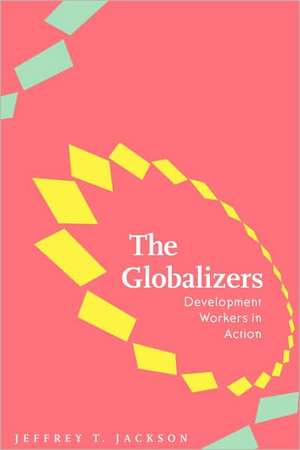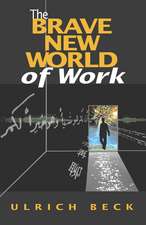The Globalizers – Development Workers in Action: Johns Hopkins Studies in Globalization
Autor Jeffrey T Jacksonen Limba Engleză Paperback – 3 sep 2007
Jackson examines the significant roles played by international development workers--"the globalizers"--operating in Honduras over the past thirty years, particularly in the troubled construction of the El Caj n hydroelectric dam, the creation of maquiladoras, and the multinational relief, recovery, and reconstruction efforts following Hurricane Mitch. He finds in the international development community a close-knit coalition of policy makers who have inserted themselves into the local political process and pushed the Honduran nation-state to conform to international norms and integrate into a transnational structure of governance.
Jackson examines the mechanisms of power at the disposal of these development organizations, the expertise of those administering development aid, the agency of development workers, and the benefits that accrue to donor countries. In doing so he makes a persuasive connection between nation building and global governance--raising important questions about whose nations are being built and why.
Preț: 323.93 lei
Nou
Puncte Express: 486
Preț estimativ în valută:
61.99€ • 64.33$ • 51.81£
61.99€ • 64.33$ • 51.81£
Carte tipărită la comandă
Livrare economică 17-31 martie
Preluare comenzi: 021 569.72.76
Specificații
ISBN-13: 9780801887581
ISBN-10: 0801887585
Pagini: 392
Ilustrații: 10 line drawings, 15 halftones
Dimensiuni: 167 x 233 x 23 mm
Greutate: 0.57 kg
Editura: Johns Hopkins University Press
Seria Johns Hopkins Studies in Globalization
Locul publicării:Baltimore, United States
ISBN-10: 0801887585
Pagini: 392
Ilustrații: 10 line drawings, 15 halftones
Dimensiuni: 167 x 233 x 23 mm
Greutate: 0.57 kg
Editura: Johns Hopkins University Press
Seria Johns Hopkins Studies in Globalization
Locul publicării:Baltimore, United States
Notă biografică
Jeffrey T. Jackson is an associate professor of sociology at the University of Mississippi.
Descriere
In doing so he makes a persuasive connection between nation building and global governance-raising important questions about whose nations are being built and why.















